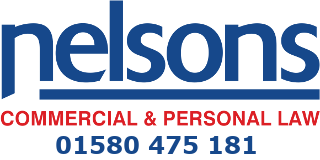We get asked a lot of questions about buying and selling a business. The most common are:
What is a business worth?
- to take on a co-owner
- not to sell at all (wait for the right buyer to come along)
- to franchise
Similarly, if you cannot afford to buy the business outright, you may be able to share ownership (by becoming a partner or co-shareholder with the existing owner) or take a franchise. A business transfer agent that specialises in the relevant type of business will be able to advise on its market value. Your accountant will be able to advise whether this is an appropriate price in your circumstances. A business may be worth more if the seller is prepared to continue working in it for a while after the sale. This will help to transfer any personal goodwill. The value of an asset-only sale will be different from that of a sale of shares. The tax effect will also vary.
How can I find a buyer or business to buy?
What will my solicitor need?
- the last three years trading and profit and loss accounts
- the latest balance sheet
- an inventory of items included in the sale
- registration documents, MOT certificates, and other paperwork for vehicles included in the sale
- leasing, credit-purchase and hire documents for business equipment
- contracts with customers and suppliers
- contracts of employment
- details of any special licences or approvals required for the business
If you are buying or selling a public house, see also these checklists: <Paperwork checklist for pub sells> [Link to PDF] <Paperwork checklist for pub buyers> [Link to PDF]
Your lawyer will tell you how best to provide or interpret this information. If you are buying, your lawyer will check all this paperwork and advise you on any particular issues that arise, such as taking over hire purchase agreement.
How long will it take?
Some of the buyer’s money may be coming from the sale of an existing property or investment, in which case the buyer will not exchange contracts unless that sale is also secure. It is likely that the buyer will need mortgage finance secured on the business assets being bought or on existing assets (such as the buyer’s home) or a combination. Whatever the position, the buyer’s solicitor will need to collate paperwork to satisfy the mortgage lender’s requirements and this can be a lengthy process.
There are always exceptions but, as a general rule and if there are no special complications or problems, you could expect to exchange contracts about four weeks after the draft contract is submitted, with completion to take place between two and four weeks later. To achieve this requires co-operation and reasonable efficiency on all sides: from buyer and seller, their respective solicitors and accountants, and from anyone else involved in the process, such as finance and insurance arrangers. Your solicitor should keep you informed of progress.
See also <commercial property transactions> [Link to Commercial Property Transactions].



